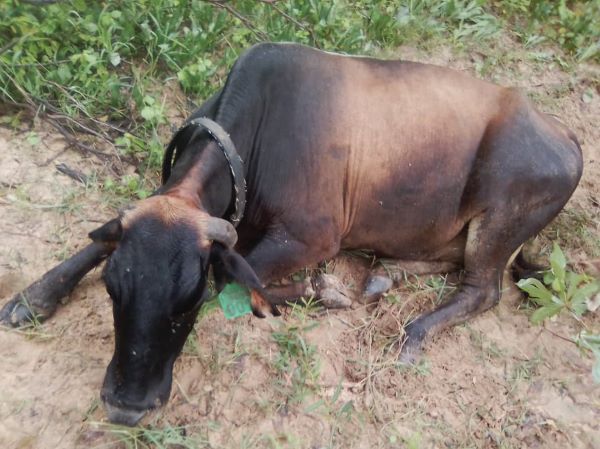Sierra Leone has reported an outbreak of the deadly anthrax disease for the first time in almost 30 years. The country’s Minister of Agriculture, Abu Bakarr Karim made the announcement and said cases were detected in animals in the Northwestern region of the country, where more than 200 livestock were confirmed to have died.
The Minister said samples were collected and tested from animals dying in Port Loko District, and the result came back positive for anthrax. No human case had been recorded so far in the Sierra Leonean outbreak, and they said they were considering instituting measures to prevent spread of the disease. Minister Karim said that 223 livestock (91 cattle, 53 goats, 79 sheep) were reported dead in the affected area.
Anthrax is described as a serious infectious disease caused by a bacteria known as Bacillus anthracis. It occurs naturally in soil and commonly affects domestic and wild animals. Human beings can also get sick with anthrax if they come in contact with infected animals or contaminated animal products. But the disease is treatable.
Re-emerging zoonotic diseases
“Government is evaluating its options to institute restrictions on the production, processing and marketing of livestock and livestock products, mainly cattle, sheep and goat. We urge the public to report any cases of sick animals in their community and to refrain from administering treatment on their own without consulting experts,” he said in a joint statement from the Ministries of Agriculture and Health.
According to the Agriculture ministry, anthrax falls in the category of re-emerging zoonotic diseases in Sierra Leone, with the last outbreak reported in the country in 1994 – 28 years ago. Anthrax exists in the form of spores, which experts say can survive for decades in the soil, until they are contracted by the right host, usually animals which either ingest them while grazing or inhale them through infested dust.
Ruminant animals infected by anthrax are often found dead with no indication that they had been ill. Humans become infected through eating meat of infected animals or handling of products of infected animals. They can also get it by inhaling airborne anthrax spores.
The minister said all cattle ranches and sheep and goat farms in the affected areas have been ordered to institute quarantine restrictions until the outbreak is under control. Other measures include intensified surveillance and management of anthrax cases both in humans and animals, as well as active social mobilisation and sensitisation of communities on anthrax prevention and control. Movement of livestock and their products from the affected areas is also prohibited.








